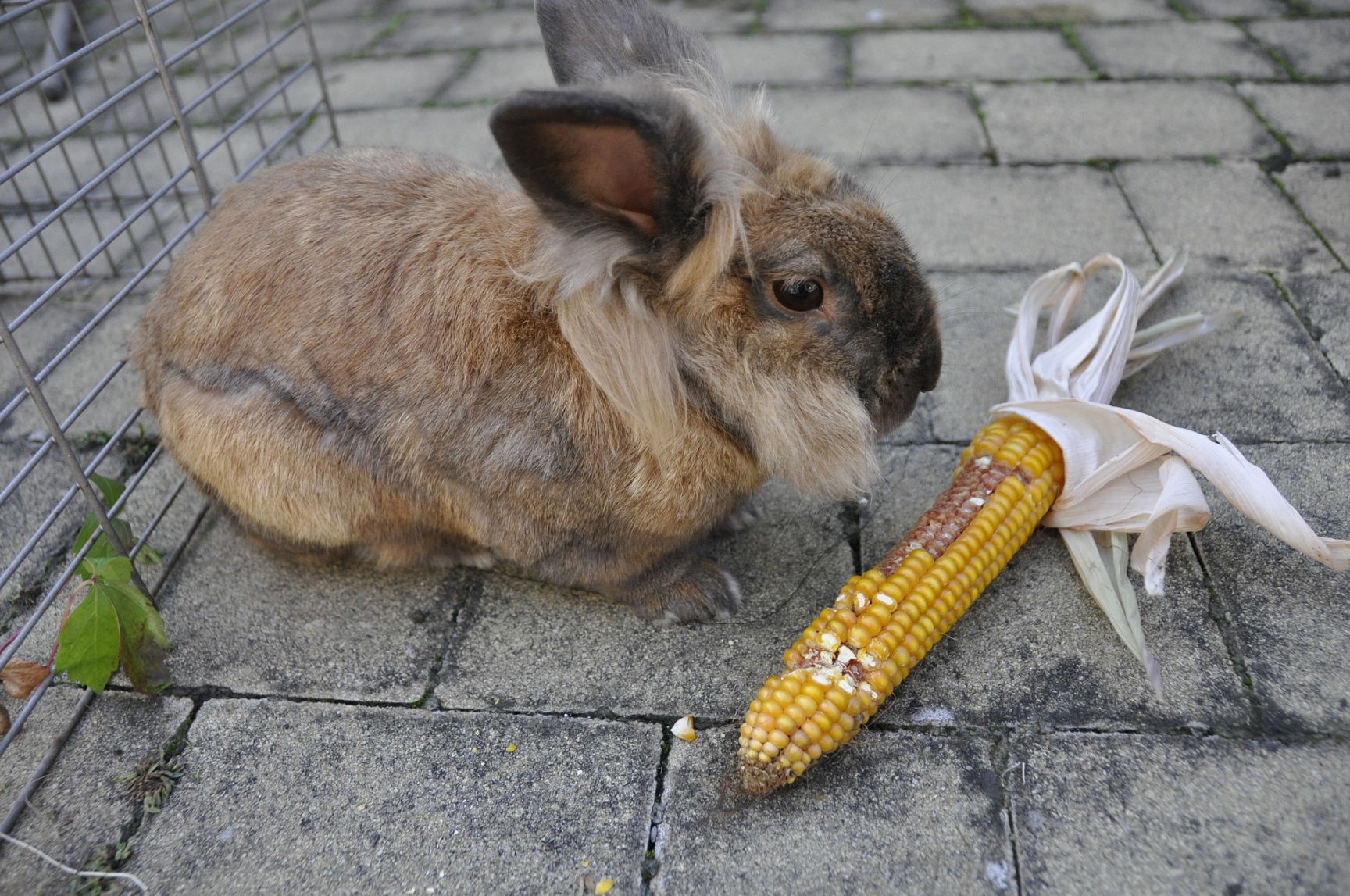Can a Rabbit Eat Corn?
Rabbits are adorable and popular pets, known for their love of munching on hay and fresh vegetables. As a rabbit owner, you may have wondered if your furry friend can enjoy corn as part of their diet. While corn is a common staple in many human diets, it’s essential to consider whether it is safe and healthy for rabbits. In this article, we will explore whether rabbits can eat corn and discuss its potential benefits and risks.

The Nutritional Value of Corn for Rabbits
Corn is a starchy vegetable that is rich in carbohydrates. It also contains moderate amounts of protein, fiber, vitamins, and minerals. The following nutrients can be found in a single cup (160g) of corn:
- Carbohydrates: 41g
- Protein: 5g
- Fiber: 4g
- Fat: 2g
- Vitamin C: 6% of the daily recommended intake
- Vitamin B6: 15% of the daily recommended intake
- Magnesium: 17% of the daily recommended intake
- Iron: 9% of the daily recommended intake
Potential Benefits of Corn for Rabbits
While corn can provide some nutritional value to rabbits, it should only be offered in moderation. Here are a few potential benefits of feeding corn to rabbits:
- Carbohydrate Source: Corn is a good source of carbohydrates, which can provide energy to rabbits. However, it should not replace the primary carbohydrate source for rabbits, such as hay or leafy greens.
- Vitamin and Mineral Content: Corn contains vitamins and minerals that can contribute to a rabbit’s overall health. For example, vitamin B6 is essential for brain development and immune function, while magnesium and iron are necessary for various physiological processes.
- Variety in Diet: Offering corn as an occasional treat or part of a diverse diet can provide rabbits with mental stimulation and prevent boredom. However, it should not become a staple food item.
Risks of Feeding Corn to Rabbits
While corn can have some benefits, there are also potential risks to consider when feeding it to rabbits:
- Digestive Issues: Rabbits have delicate digestive systems, and consuming too much corn can lead to digestive problems such as gas, bloating, or diarrhea. This can be attributed to the high carbohydrate content and low fiber content of corn.
- Obesity: Corn is relatively high in calories compared to other vegetables commonly fed to rabbits. Overfeeding corn or providing it frequently can lead to weight gain and obesity, which can have serious health consequences for rabbits.
- Dental Problems: Rabbits’ teeth continually grow, and they rely on fibrous foods to wear them down naturally. Corn lacks the necessary fiber to promote healthy tooth wear, increasing the risk of dental issues like overgrown teeth or molar spurs.
FAQs (Frequently Asked Questions)
1. Can rabbits eat corn husks and cobs?
Yes, rabbits can nibble on corn husks and cobs, but they should be given in limited quantities. The husks and cobs can be a choking hazard if not appropriately supervised.
2. How often can I feed corn to my rabbit?
Corn should be fed to rabbits sparingly, if at all. It should only be an occasional treat, and the majority of their diet should consist of hay, leafy greens, and a small amount of rabbit pellets.
3. Can rabbits eat corn on the cob?
Yes, rabbits can eat corn on the cob, but it should be given in moderation. Remove the kernels from the cob and offer them to your rabbit as a special treat.
4. Are there any alternatives to corn for rabbits?
Yes, there are numerous safe and healthy alternatives to corn for rabbits. Some suitable options include leafy greens like romaine lettuce, spinach, and kale, as well as other vegetables such as carrots, bell peppers, and zucchinis.
In conclusion, while corn can be included in a rabbit’s diet as an occasional treat, it should not be a significant part of their regular meals. Rabbits have specific dietary requirements, and their primary food sources should consist of hay, leafy greens, and a small portion of rabbit pellets. Remember to always introduce new foods gradually and monitor your rabbit for any adverse reactions. Consulting with a veterinarian is also advisable to ensure your rabbit’s diet meets their specific needs and promotes overall health and well-being.
Related Articles…
Copyright Notice:
All images featured on this site are sourced from the internet, copyrights belong to respective owners. Should you own any image and require it to be removed, please contact us.